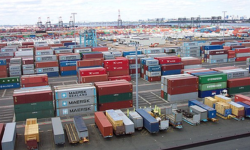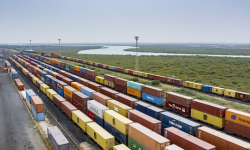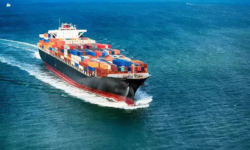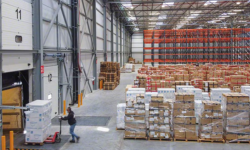Land Transport Emirates and GCC
200+ Happy Customers
5 Years of Experience
Trusted service professionals
Rated 4.8 out of 5
Land transport has long played a pivotal role in the development and prosperity of the Gulf Cooperation Council (GCC) countries, comprising Bahrain, Kuwait, Oman, Qatar, Saudi Arabia, and the United Arab Emirates (UAE). The region’s strategic location, booming economies, and ambitious infrastructure projects have made it a hub for road transportation, facilitating trade, tourism, and economic growth. In this article, we will explore the significance and evolution of land transport in the Emirates and the broader GCC region.
Key Aspects of Land Transport in the Emirates and GCC

Cross-Border Connectivity
The GCC nations have prioritized improving cross-border road connectivity, enabling the seamless movement of goods within the region. Initiatives such as the GCC Rail and the Arabian Bridge project are working to create a unified road and rail network that will connect the entire region.

Transportation Corridors
Several transportation corridors, like the Abu Dhabi-Dubai corridor in the UAE or the North-South Railway in Saudi Arabia, have been developed to enhance connectivity within individual countries. These corridors play a vital role in reducing travel times and increasing efficiency.

Innovations in Infrastructure
The region is at the forefront of incorporating technology and innovation into its transport infrastructure. Intelligent transportation systems (ITS), smart highways, and automated toll collection systems are becoming commonplace, improving safety and efficiency.

Logistics Hubs
The UAE, particularly Dubai, has emerged as a logistics and trade hub. The Dubai Logistics Corridor, which includes Dubai World Central (Al Maktoum International Airport) and Jebel Ali Port, exemplifies the commitment to fostering a logistics-friendly environment.
The Road to Prosperity
- Strategic Location: The GCC countries sit at the crossroads of Europe, Asia, and Africa. This geographic advantage has turned them into crucial transit points for international trade, particularly the transport of goods by road. Land transport routes crisscross the region, connecting the major ports and cities to facilitate the movement of goods and people.
- Economic Diversification: Over the past few decades, these nations have diversified their economies beyond oil and gas, investing heavily in infrastructure, including road networks. The construction of modern highways, bridges, and tunnels has not only enhanced internal connectivity but has also fueled economic diversification, making the region more attractive to businesses and investors.

Challenges and Opportunities
While land transport in the Emirates and GCC has made significant strides, it also faces challenges such as traffic congestion, sustainability concerns, and the need for ongoing infrastructure development. However, these challenges present opportunities for innovation and growth.
- Sustainability: The region is increasingly focusing on sustainability, with initiatives to reduce emissions, improve fuel efficiency, and invest in electric and alternative fuel vehicles.
- E-commerce and Last-Mile Delivery: The growth of e-commerce has created a surge in demand for efficient last-mile delivery solutions. Investments in this area are poised to continue expanding.
- Tourism and Trade: As the UAE prepares for Expo 2020 Dubai, and with the anticipation of a post-pandemic tourism resurgence, land transport will play a vital role in connecting visitors and goods to these international events.
[email protected]
Drop Us a Line
+971 55 770 7514
Call Us Now
Ras Al khor industrial area 2
Warehouse 27
